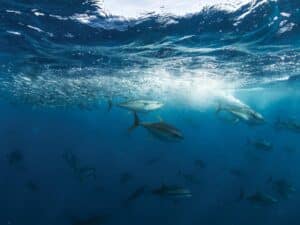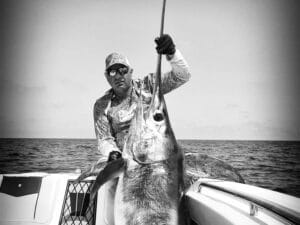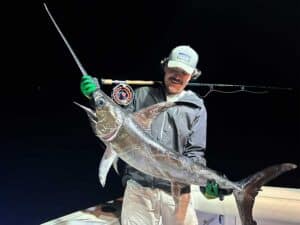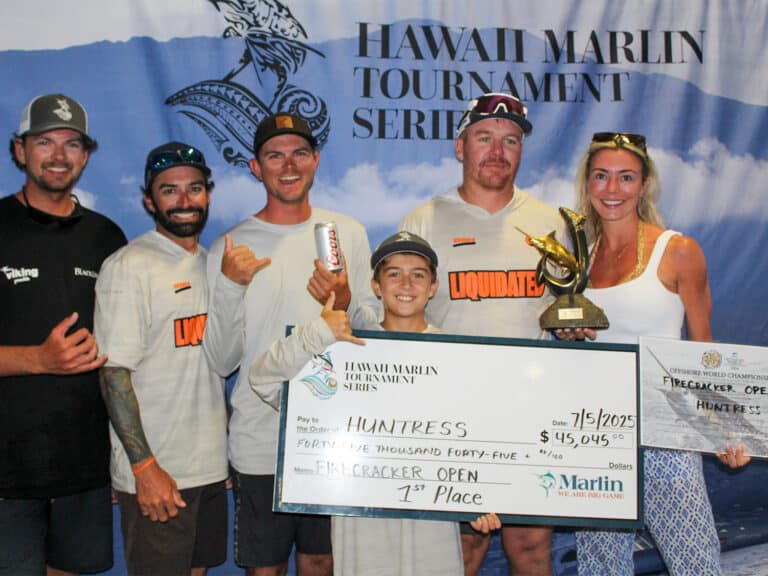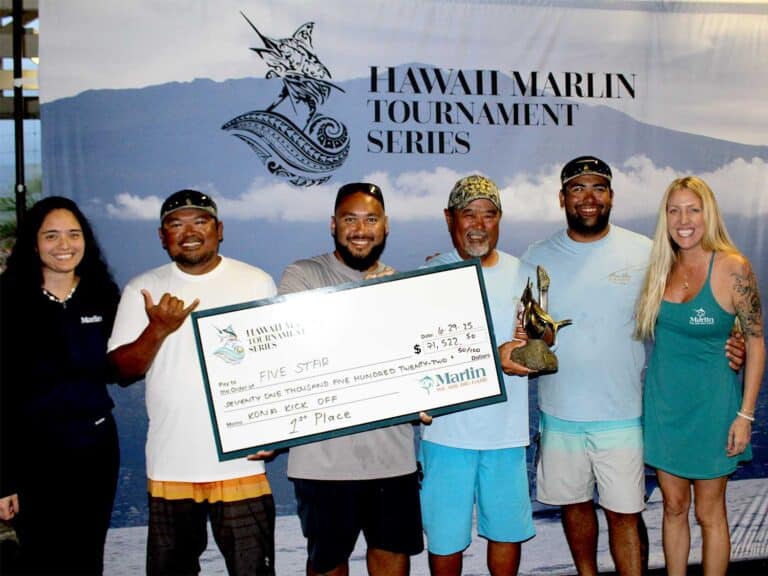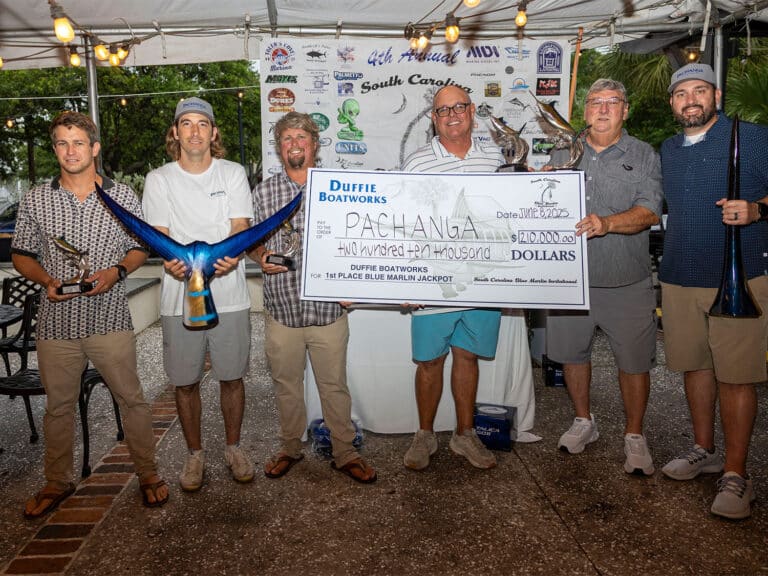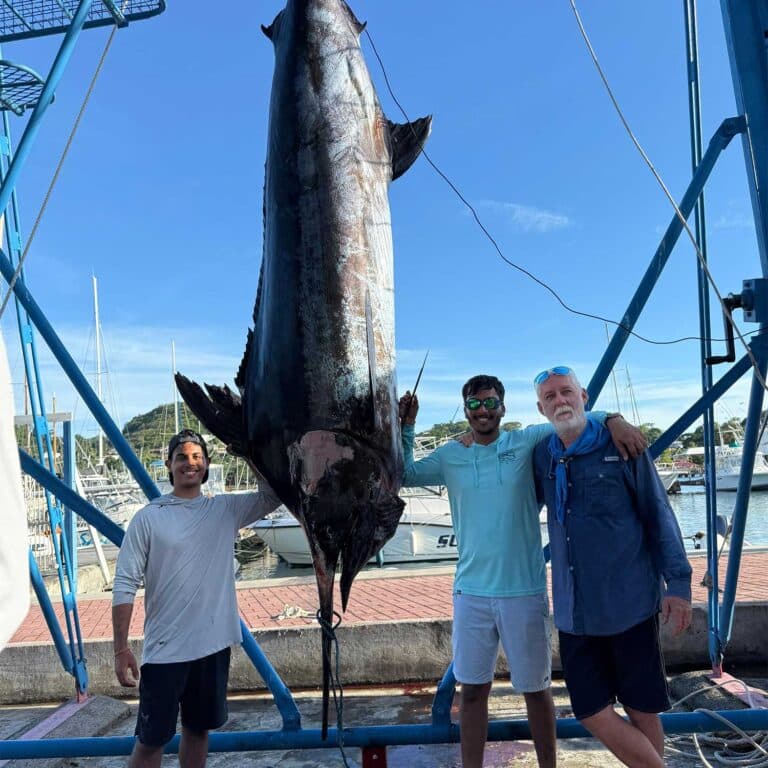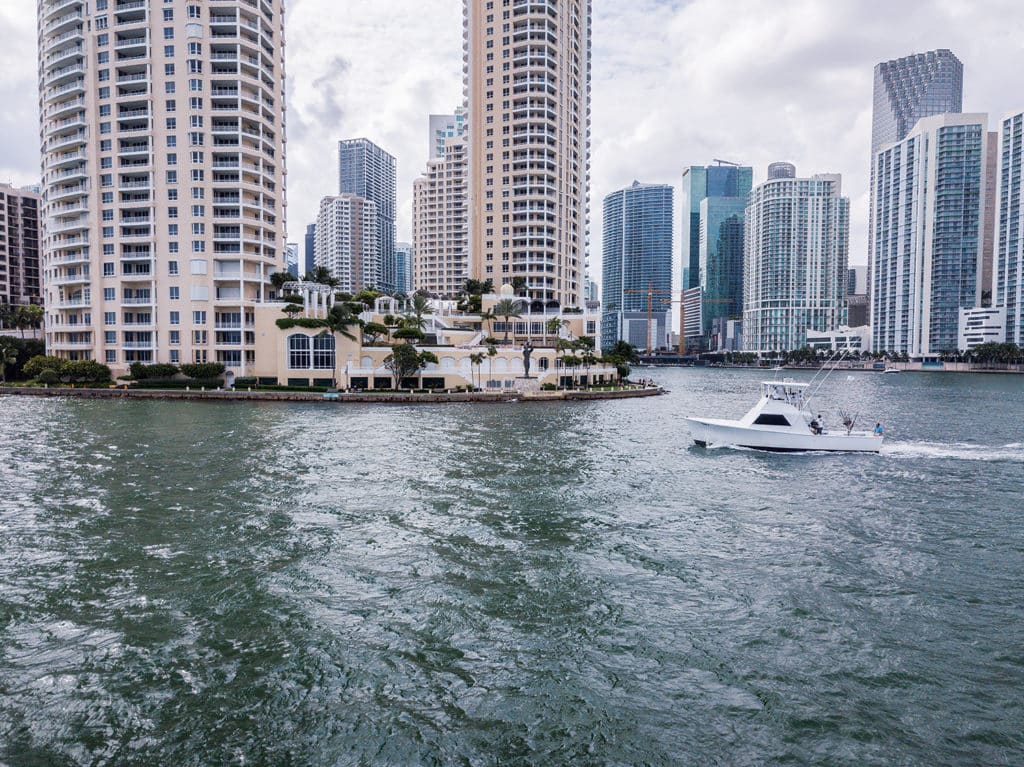
For 16 summers now, Capt. Mike Puller has been teaching Miami’s youth the art of sport fishing. On the surface, the lessons these kids learn not only include knot tying, cast-net throwing and kite-fishing, but beneath, the underlying lessons that create the foundation of moral socialization, appreciation and teamwork are also embedded. For Puller, it’s not just the satisfaction of teaching his students to master a new skill set, but it’s also the joy of seeing the way they mature—as humans—navigating obstacles and connecting the lessons to everyday life without even knowing it. He’s not curing cancer, he says, but perhaps one day, one of his kids will.
In 1996, 28-year-old professional mate Mike Puller stepped off an airplane from Italy, where he had been fishing for the previous few weeks. His brother, Jim, broke the news: Their father was selling one of the family’s charter boats, a rode-hard, put-up-wet 45-foot Key West No. 1 called Lisa L. With two boats on the charter dock, he opted to keep the other: a nice 46-foot Hatteras named Sea Vous Play.
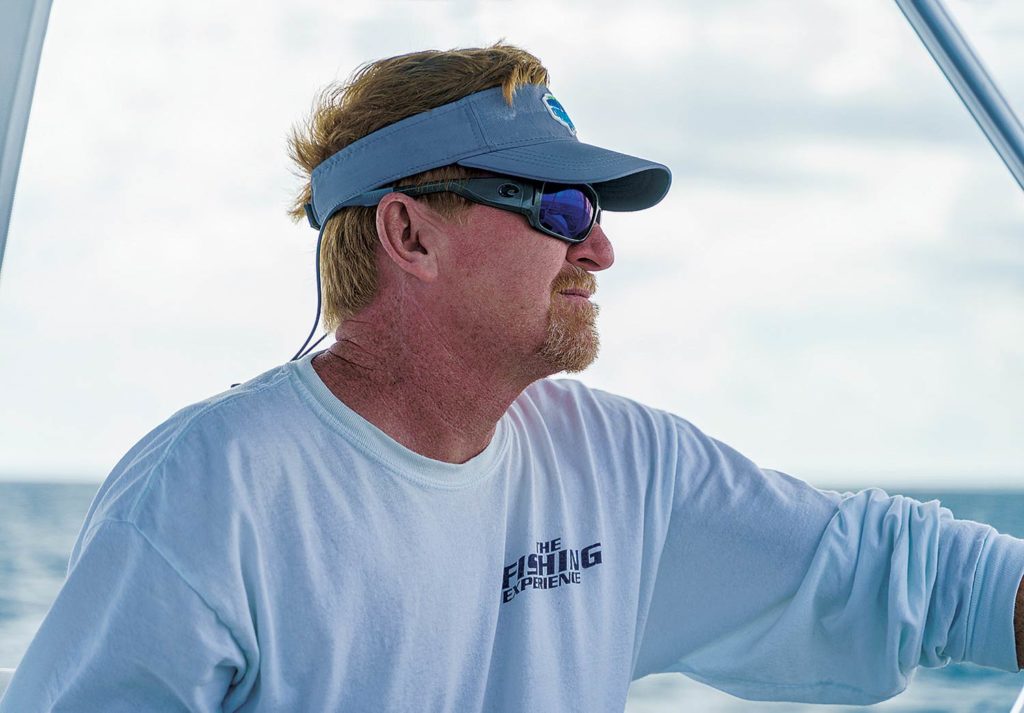
Key West No. 1’s are known as solid, commercial-style fishing platforms that were also used to smuggle drugs in the 1970s and ’80s, but as a Miami charter boat, it had served the Puller family well for the past 12 years. Jim had been working for the business running Lisa L but decided to go out on his own, and his father, Capt. Wes Puller, who started chartering out of Crandon Park Marina on Key Biscayne when Mike was just a kid, didn’t want the hassle of owning two boats. He was going to sell the iconic Lisa L. “Bells went off in my head,” Puller says. “I had to have her. To me, she was the most beautiful thing on the ocean.” And although his father fought him tooth and nail, Wes gave in. Puller remembers these words the most: “You don’t know what you’re getting into.”
Puller was all-in, but his dad was right. For the next three months, he would spent all day and half the night turning wrenches to keep Lisa L floating. “I had my very own charter business, and I was going to do whatever it took to make it great.” Perhaps this determination is what made Puller not only a successful business owner and second-generation charter fisherman, but also a loving husband and a supportive father himself. He learned from the age of 15 while working on the docks on Key Biscayne that hard work, conviction and integrity are the building blocks to be being not just a good businessman, but also a good human.
“After some thought, he decided he would dedicate one day every week or two to take his son and his son’s friends out on the boat.”
Capt. Mike Puller
Sport Fishing’s Summer Camp
When Puller’s son was born in 2003, he couldn’t wait to take him fishing. He often thought back to his own childhood, riding along with his dad: “The fishing part was for the paying customers,” Puller says, “and there weren’t very many options for kids to get out on a boat and do ‘the real thing.’” After some thought, he decided he would dedicate one day every week or two to take his son and his son’s friends out on the boat.
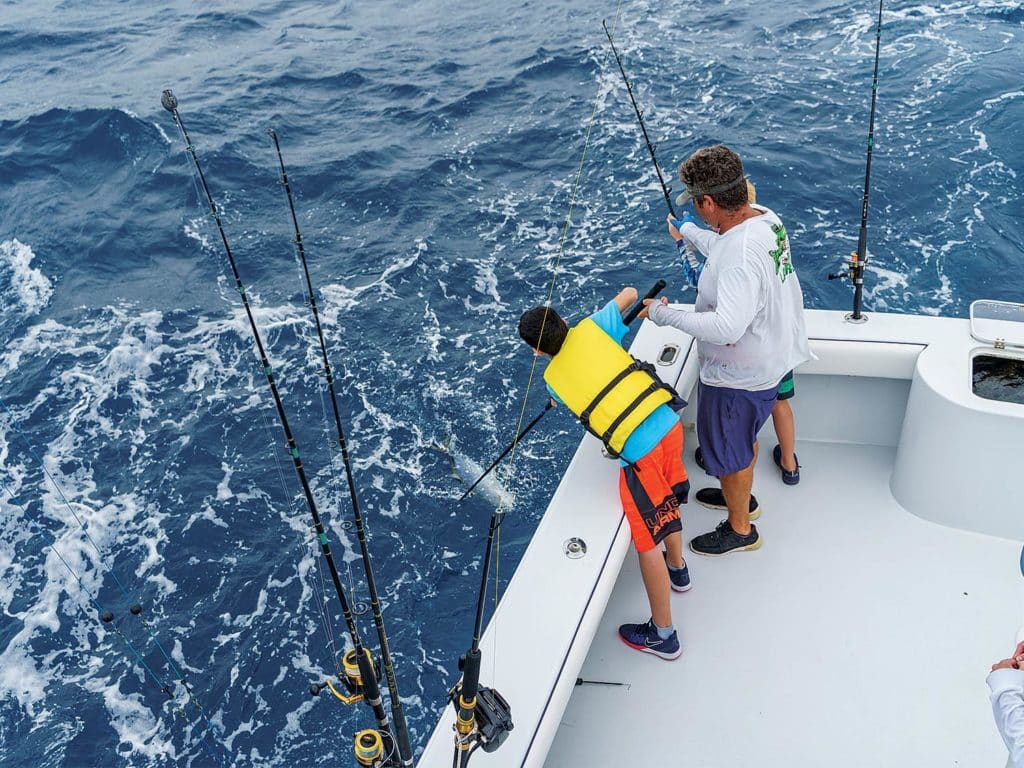
One late-fall evening, he was talking with his then-mate, Steve Smithies, about how they could generate business for Lisa L in the slow season. Smithies suggested they take out a few guys at a time and charge them for fishing lessons. “Most guys who fish already have too many bad habits. I’d rather just start from scratch and teach kids,” Puller replied. Another bell went off, and so it would be. The Key Biscayne charter captain who had nursed his 45-foot boat back to health had a dream, and he was going to make it happen—if not for his business, then for his community, for the kids.
It was a great idea. Nothing like it existed, and with only months to plan, a website was created and countless hours were spent shaping the lesson plans that would get kids out on the water for a real fishing experience. Puller managed to get a few sponsors to provide tackle bags and raffle items, eventually spending every last penny he had on radio advertising to get the school off the ground.
“Two days after the first radio ad aired, I sold out four weeks of camp,” Puller says. “So I hired a mate to stay on land to teach one group casting, net throwing and knot tying, while I was offshore teaching the other group. At lunchtime, we’d come back in and switch out the kids.” The program has been going ever since. Most of his students are local, some from overseas, and some have boats already, taking home the skills they’d learn to teach their families. Some follow social media fishing teams and personalities just hoping for a chance to get out on the water. But no matter the origin, there is one common denominator, Puller says: “They all have this inexplicable, insatiable, obsessive love for fishing.”
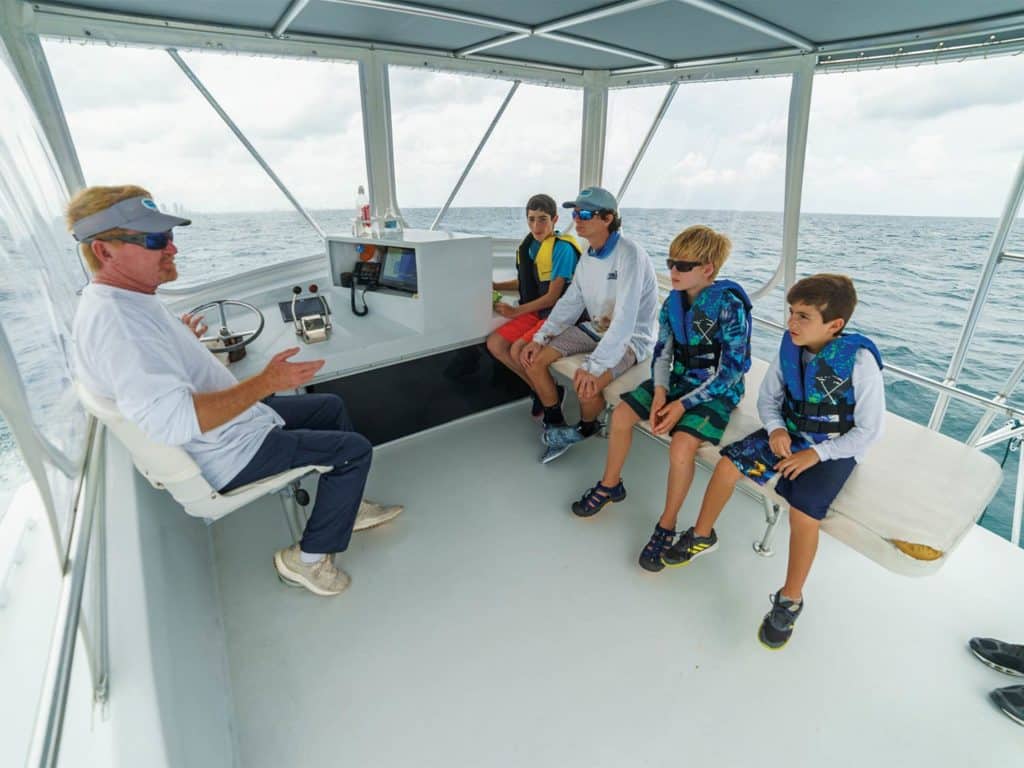
Lessons, Virtues and Payoffs
Puller believes that there are many lessons to be learned from fishing. He cites patience, perseverance, humility, resourcefulness and teamwork as some of them. “Nowhere in their lives can kids so quickly learn the benefit of these virtues than from a hard-earned great day of fishing—as well as a really crappy day of fishing,” Puller says.
He recalls seeing it again and again whenever a 12-year-old veteran camper reassures a first-time, anxious 8-year-old: “‘Just wait, you’ll see. It’s gonna work,’ the veteran tells the first-timer. And then the bite: ‘Wow! You were right!’ the younger child says joyfully.”
Puller believes moments like that stick immovably in the mind of a child, which invariably leads to Lesson Two: Appreciation.
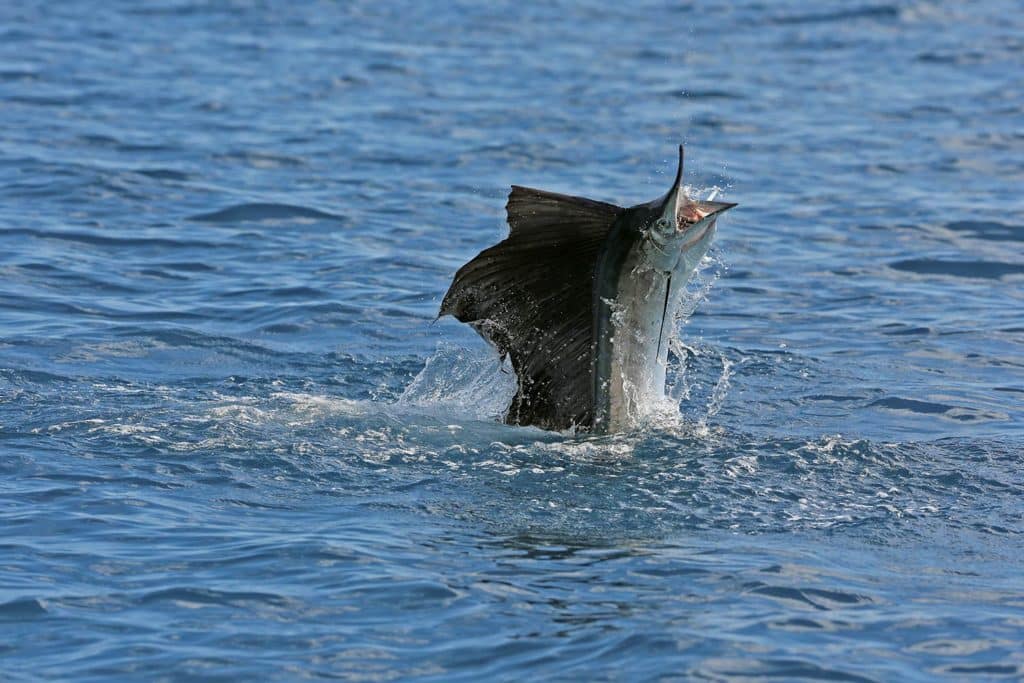
Often reflecting on his own childhood when working with the kids, Puller knows that a child’s mind is easily influenced by the adults they look up to. When he was a kid, fish had one meaning: dollars. Without the dollars, without fish on the dock, the charters wouldn’t sell. Without charters, his family would suffer, so fish meant only one thing to the young Puller. But as he aged, as he grew into his own, he could see some fisheries were on the decline.
Unregulated commercial fishing was partly to blame, but the charter industry wasn’t exactly helping. “I began to understand and still believe that a transformational change would have to start with the youth—before the bad habits take hold. We have the technology and skill to kill everything in the ocean, so we also have the responsibility to teach the next generation that they can enjoy the resource but also protect it for the future.” The first experience is the one that impresses the most, and every once in a while, the kids take away something they learn at fish school and apply it in everyday life, motivating them to try harder. “I truly believe as these kids persist in their goals, they realize success is mostly about effort. It takes some people a lifetime to buy into that, and some never get it—even as adults,” Puller says. Fishing teaches them the harder the effort, the better the success.
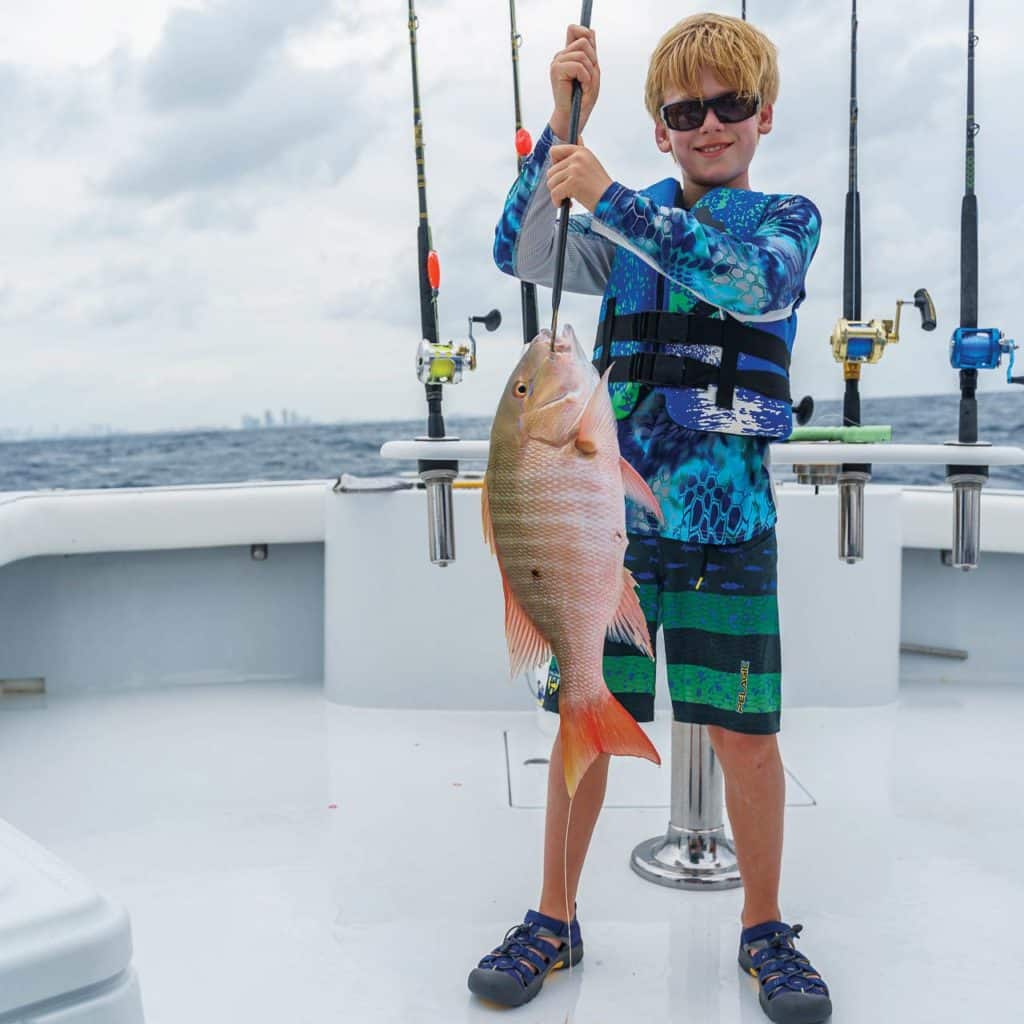
Full-Circle Learning
The Summer School of Fish—rebranded in 2012 as the Fishing Experience—teaches students ages 7 to 15 more than just angling skills. Puller tries to cram in as much as possible so that they can see each step is a precursor to the next. He calls it an “on-the-fly technique.” From bait-fishing, dehooking, putting out the spread, hooking and fighting the fish, to wiring, gaffing and safely releasing, Puller covers all the bases as time allows. “I like them to learn the entire process—start to finish,” he says, teaching not only the how, but also the why. Puller reinforces the why with stories that reiterate a lesson to be learned with every fish—the ones you catch and the ones you lose.
“I believe in giving the kids the opportunity to do something great right out of the gate,” Puller says. And although the fish-school staff lends assistance, if a new student catches a sailfish the first time out, then that memory will be there for a lifetime. And as the kids get older, their experience allows them to create opportunities themselves, giving them a sense of self-worth and positive reinforcement through accomplishment.
As Puller’s students progress through the program—many participating every year until they age out at 15—they also get opportunities to perform mate’s duties or ride up on the bridge, where Puller happily explains what his job is, the responsibilities of the captain, and the tools he uses to find fish, experience- and electronics-wise. It’s this full-circle learning that he hopes will encourage these young fishermen—boys and girls—to grow up to be strong, confident and patient adults.
“There are a thousand concerns on a boat, but if the kids are taught how to board a boat properly, and gaff and handle a fish properly from the beginning, then it’s all they know.”
Capt. Mike Puller
A safe environment is something that Puller does not take lightly, and fishing in and of itself can be a dangerous hobby. Ninety percent of what he does revolves around safety. “Fishing almost seems incidental,” he says. “There are a thousand concerns on a boat, but if the kids are taught how to board a boat properly, and gaff and handle a fish properly from the beginning, then it’s all they know.”
The crews who work at the Fishing Experience are well-trained and prepared for most situations when it comes to safety, and Puller thinks it’s best to discuss the “what-ifs” to prepare the kids on how to react in an emergency—what their job is. The passengers are Puller’s first consideration, and prepared passengers are definitely easier to protect. “I don’t just spout out safety rules. I explain why the rule exists and what could happen if it didn’t,” Puller says, which not only protects them on the boat, but also teaches them to practice safety on their own.
Most of the school’s kids come by word of mouth, and parents undoubtedly have the safety conversations among themselves. And although Puller says that most of the concerns revolve around weather and vessel safety and seaworthiness, he makes it clear that all the vessels in the program are impeccably kept, working charter boats with world-class crews. When it comes to the weather, Puller never puts the kids in harm’s way. If they have to cancel, they cancel, but that is rare, and make-up days are easily scheduled.
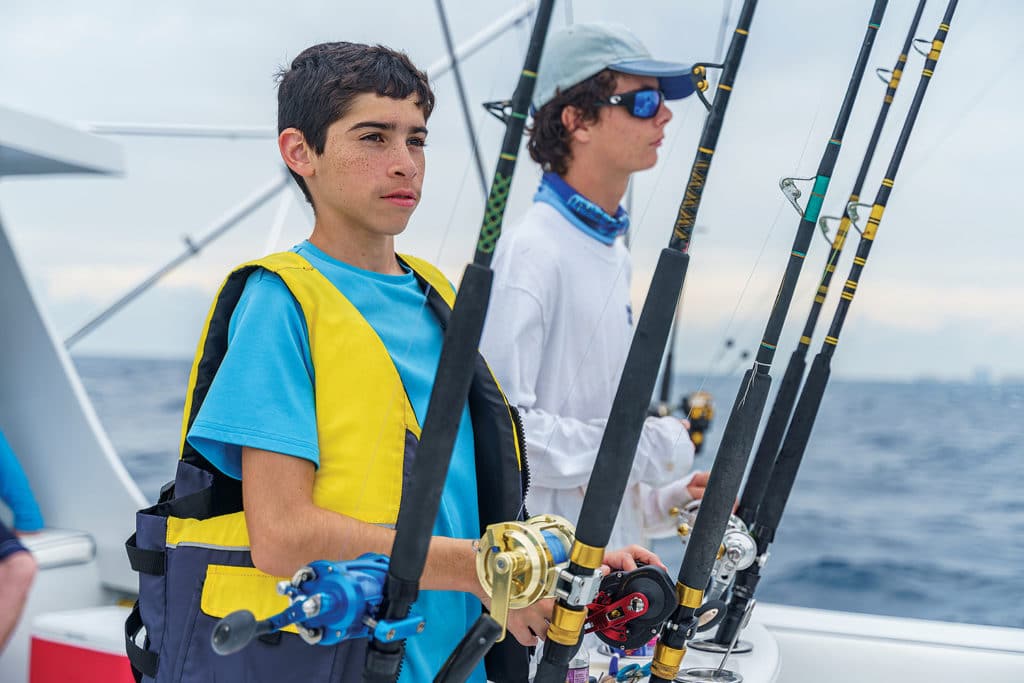
Success Stories
Puller regularly has the joy of seeing current and former students of his on local tournament stages accepting trophies and prize money. Some have developed lures and tackle; some have moved into boatbuilding and sales; and a number of them now fish professionally for a living.
As the students get some experience under their belts, they can apply to be a “ride-along” in the program. Ride-along is a term used in the charter business for a mate in training. “They are basically junior counselors,” Puller says. “They have a good set of fishing skills but understand the importance of passing on their love for the sport and respect for the resource to the younger kids.” At present, Puller has a 16-year-old ride-along named Tyler, who has fished with him since he was 6 years old and often fills in as mate.
“Few kids would have the skill level to work solo with me because I insist on having competent and talented professionals on my crew, but Tyler has been all-in on fishing for as long as I can remember, and insists that this is his chosen career, so I respect that. And I must say, he’s getting pretty darn good at it,” Puller says.
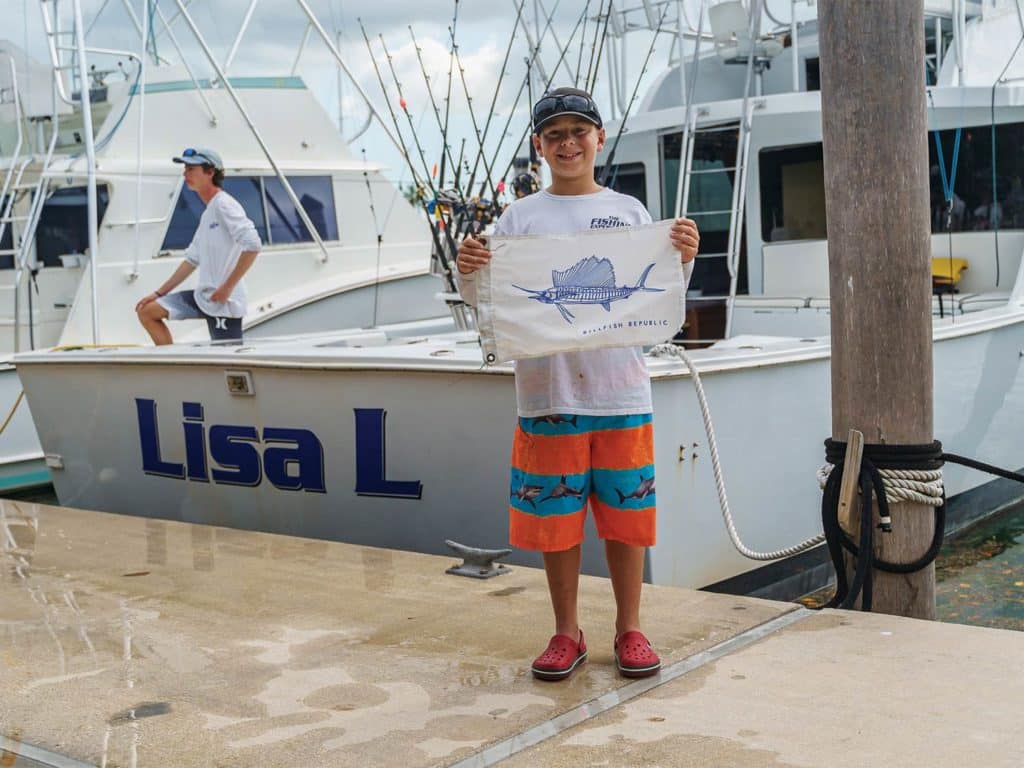
Benefaction
There’s no denying that sport fishing is an expensive sport, and Puller never had the vision of his program as being a moneymaker and just for the “rich kids.” In 2012, he formed a nonprofit organization with the goal of raising money—enough to bring down the cost of the program, creating more access. “I quickly learned that fundraising is a full-time job, and no one was going to come along and write a big check to support it,” Puller says. But, he was able to incorporate a special-needs program, which he says has been the most rewarding work he’s ever done.
Additionally, with the assistance of the University of Miami’s Aquaculture Labs, Puller’s organization has developed a project to replenish the sensitive macroalgae that has been damaged and depleted from some of the bait-fishing reefs that lie just off the coast of Key Biscayne and Miami. “Because of my generous charter clientele, I expect this work will continue to pay dividends long after I’m gone,” he says.
Puller’s son is proud of his father’s success and loves to see him speaking at a fundraiser, winning an award, or simply talking about the day’s catch. But he also has his own hopes and dreams, just recently becoming a competitive swimmer. This dream is something that is embraced and encouraged by his family wholeheartedly, and Puller says he’s quite content with his son doing his own thing.
It is highly likely that a former camper or mate picks up the reins one day when Puller is ready to hand them off. “The love that people like me have for fishing has to come organically,” Puller says, “so if you’re going to do this for a living, you’d better love it.”
Although Puller has no plans to retire anytime soon, he does say he’s still having a blast. For more information and details about Miami’s Summer Fishing Camp and the Fishing Experience, please visit thefishingexperience.org.
